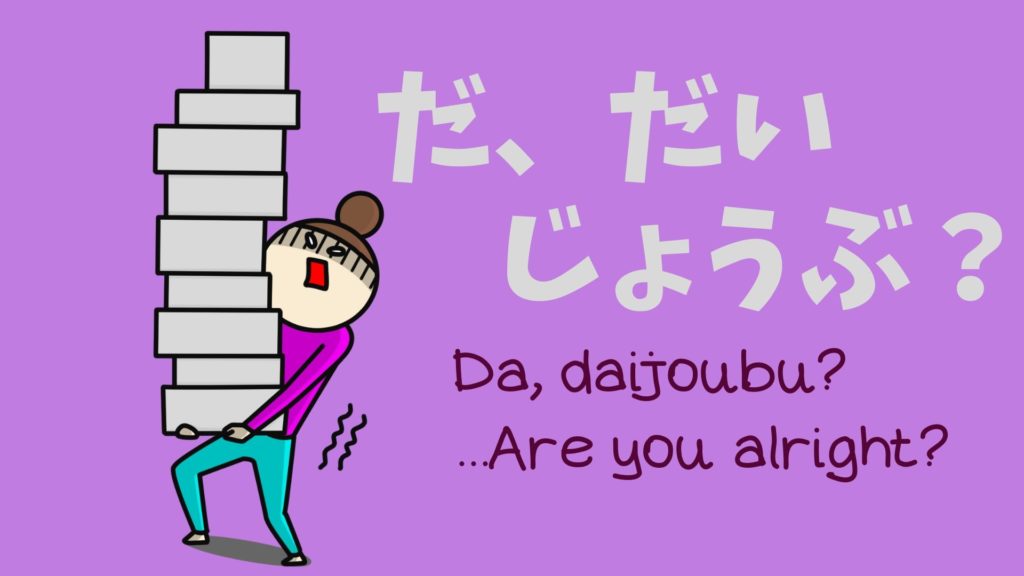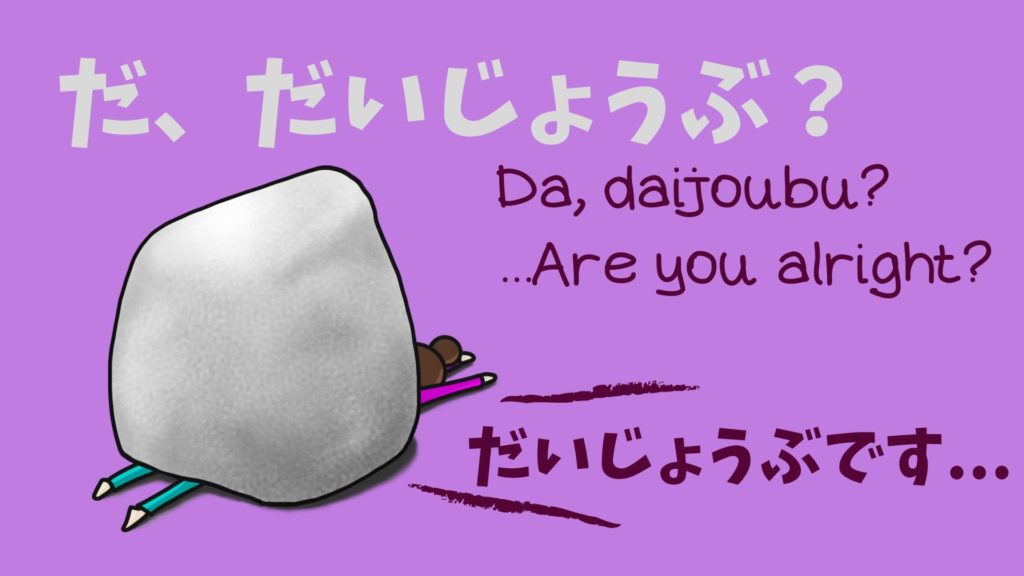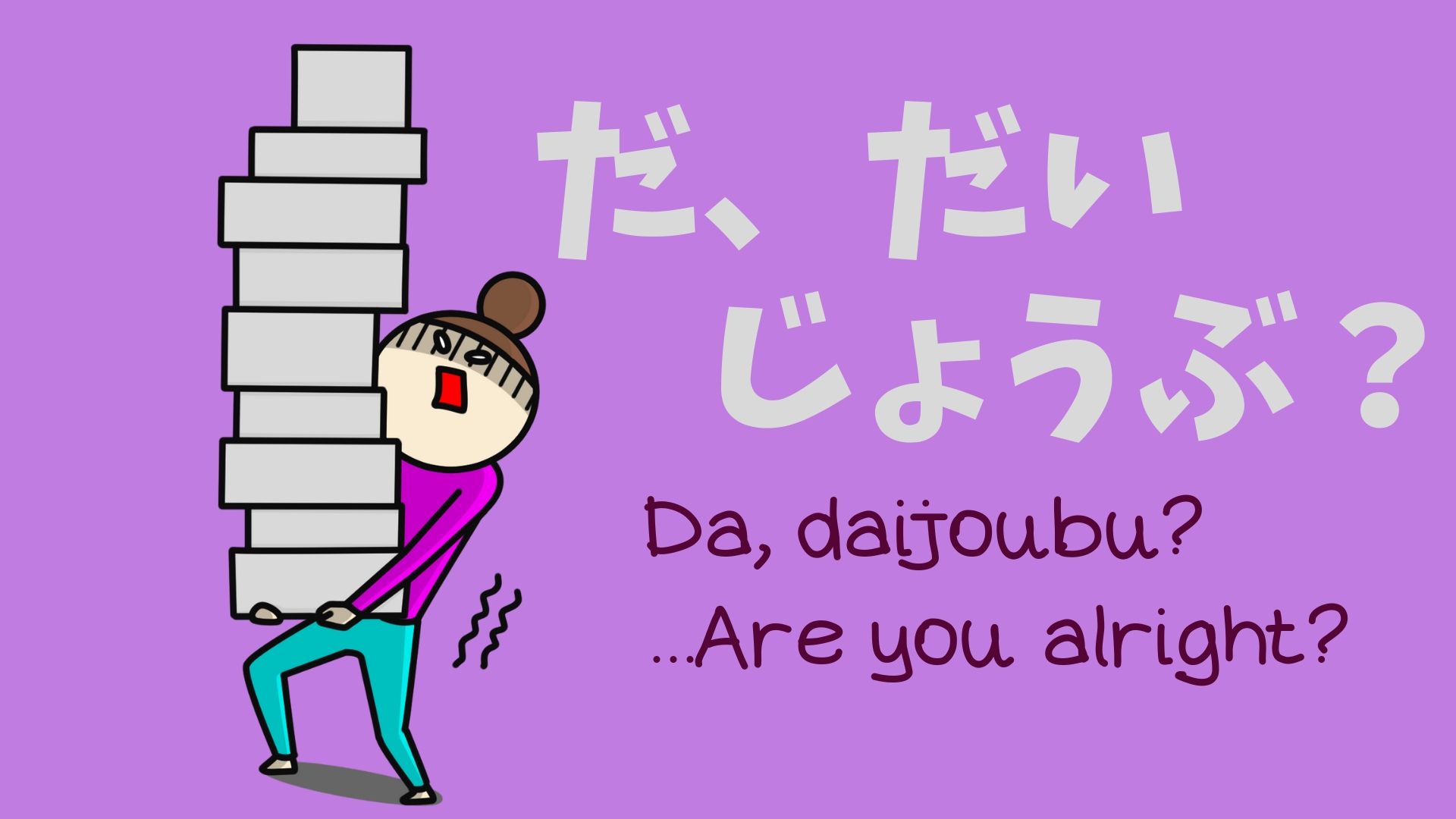A couple of months ago I watched a TV series called “Tin Star” on Amazon Prime. It is a British-Canadian crime drama with lots of violence and bloody scenes. It’s pretty wild!
I am not a native speaker of English, but I could tell that many of the characters in the series spoke British English rather than American English. The funny thing was that they liked asking someone “Are you alright?” even if the person was obviously not alright at all, such as someone just having broken their legs or having been shot.
If I translate this “Are you alright?” into Japanese, it will be ‘だいじょうぶ Daijoubu?’
‘だいじょうぶ Daijoubu’ means ‘OK’, ‘Fine’, ‘No problem’

If someone falls down in front of you, you may give a hand to them, saying, “だいじょうぶ Daijoubu?” The person who fell down might say, “だいじょうぶです Daijoubu-desu”. ‘です Desu’ makes this phrase sound polite.
You can use this phrase when you are talking about someone’s health conditions or feeling, which can mean “I am fine”, “I’m feeling OK”.
‘だいじょうぶ Daijoubu’ can be used when you want to say ‘No problem’, ‘It will be fine’,
このお水は飲めますか?
Is this water safe to drink?
だいじょうぶです。
Daijoubu desu.
Yes, it is fine.今夜ラーメンでもいい?
Is Ramen OK for you tonight?
だいじょうぶ。
Daijoubu.
No problem.こんどの日曜日でもいい?
Is coming Sunday OK for you?
だいじょうぶです。
Daijoubu desu.
It will be fine.
Sumimasen and Daijoubu
If you bump into someone’s shoulders, you could say “すみません Sumimasen!” as an apology. The Japanese person may respond to you, “だいじょうぶです Daijoubu desu” which means “No problem. I’m fine”.
To refuse someone’s offer
You could use that phrase when you refuse someone’s offer or suggestion. For example;
ビールのおかわりは?
Would you like another beer?
だいじょうぶです。
Daijoubu desu.
No thanks.車で送っていきますよ。
I will give you a ride/lift.
いえ、だいじょうぶです。
Ie, daijoubu desu.
No thanks. It’ll be OK.
‘いえ ie’ or ‘いいえ iie’ means “No”, but if you use ‘だいじょうぶ Daijoubu’, you sound more polite and mild.
Summerise the meanings of ‘だいじょうぶ Daijoubu’
- It’s OK.
- I am alright/fine.
- No problem.
- Don’t worry. (as a response to someone’s apology)
- No thanks. (as a refusal for someone’s offer)
It is a useful phrase. Some Japanese people even tend to overuse it and like the people in “Tin Star”, sometimes say “だいじょうぶ Daijoubu?” even when they know the person is not really fine.

Also, when some people see others doing something stupid, they could insultingly say “だいじょうぶか Daijoubu ka?”, meaning “Are you insane?”



Comments